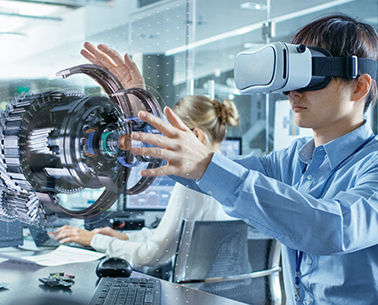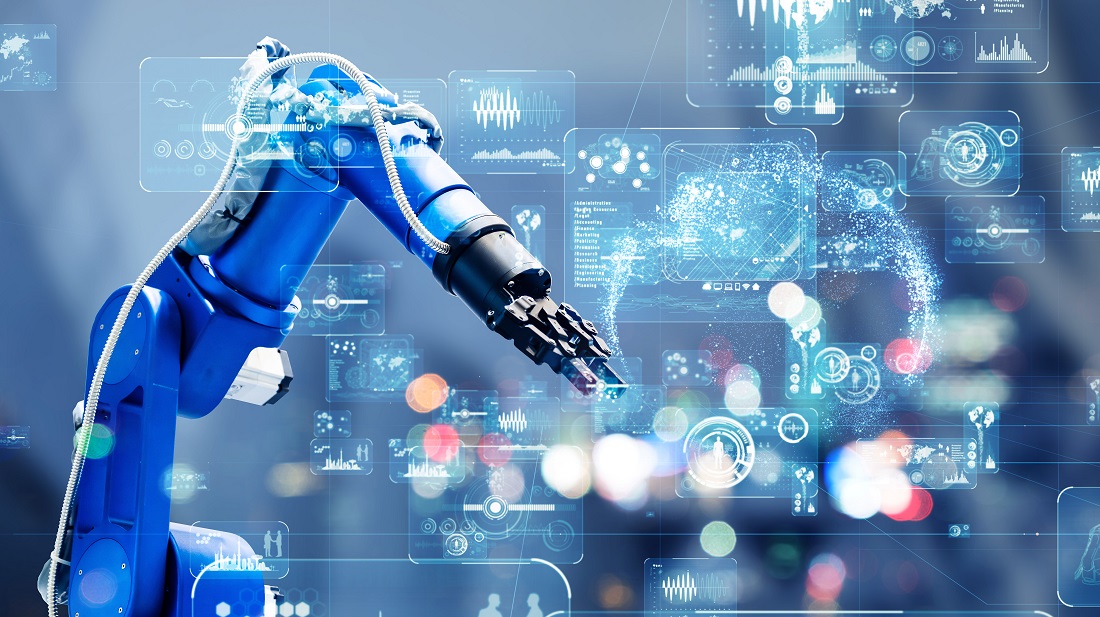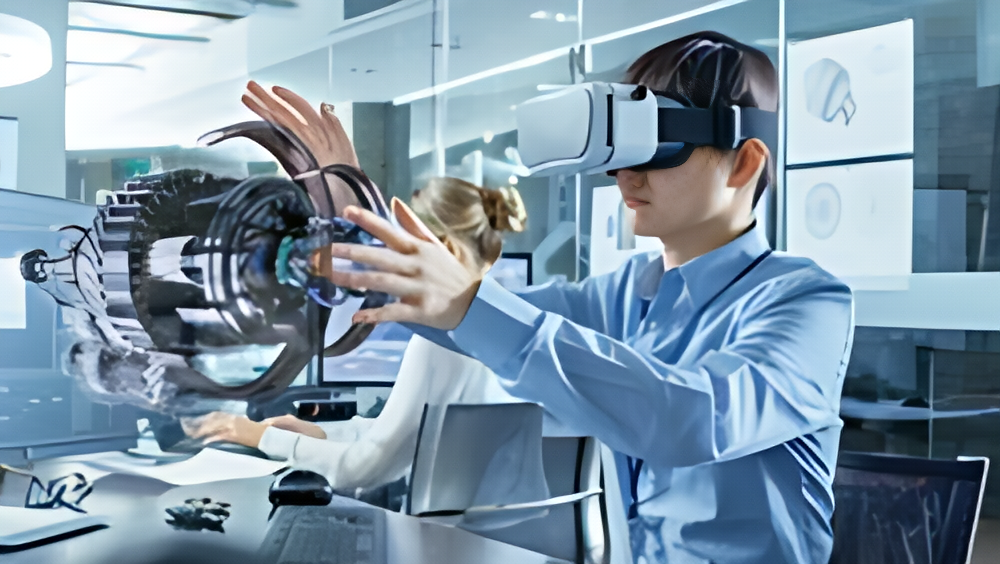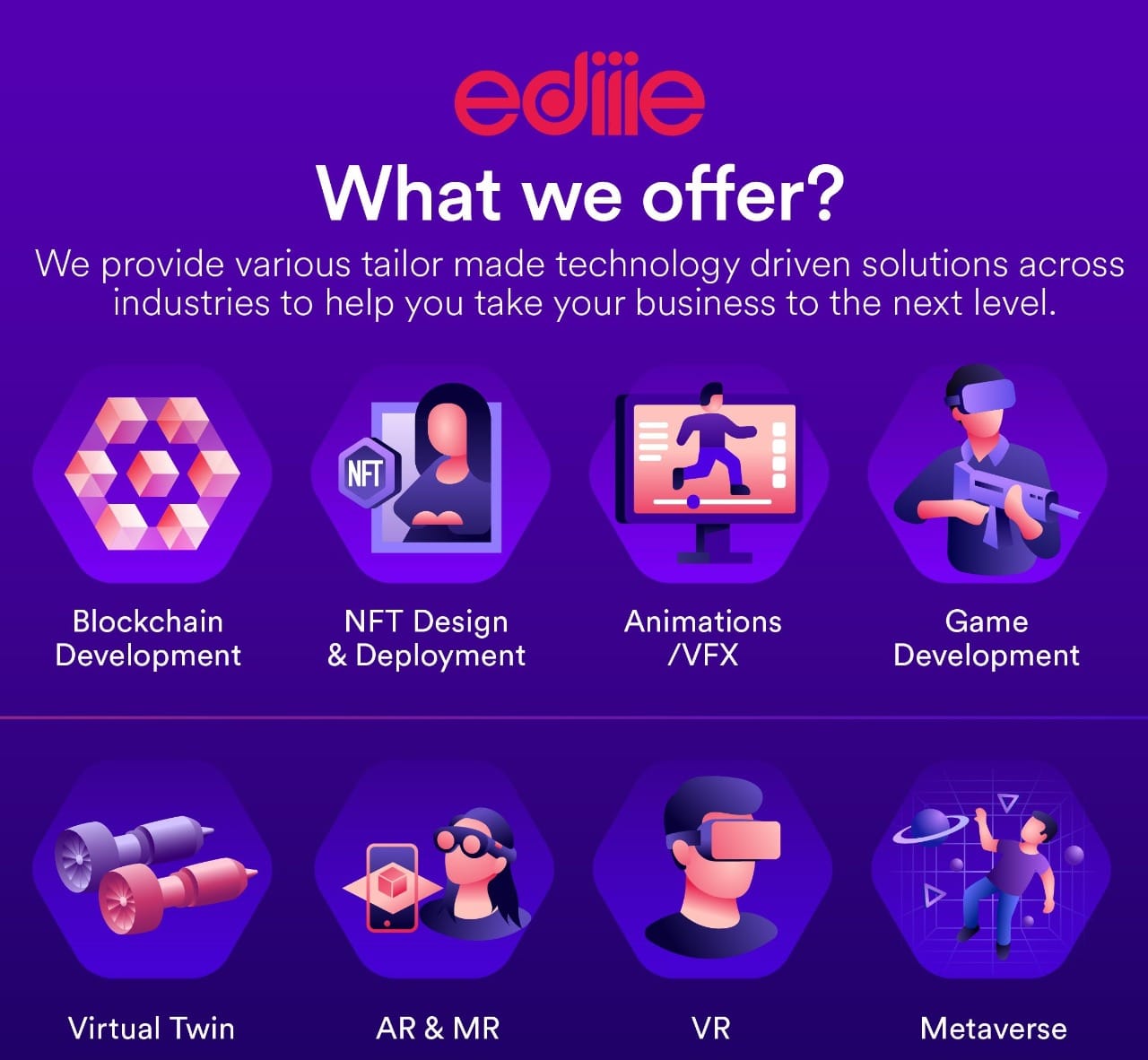AI in Manufacturing: Applications, Examples & Benefits
Modern methods of manufacturing and techniques have reshaped how industries operate across various sectors. It has seen the inclusion and upliftment of various operations and processes bringing tangible results and advantages.
And though manufacturing is generally seen as a ‘slow’ adopter of new technologies, the increasing number of applications and benefits has been a contributing factor for many.
Artificial intelligence, such as conversational AI, is the talk of the town among different hubs and communities. And manufacturing is no different. AI in manufacturing sees the convergence of smart computing and algorithms with tasks that dictate the intricacies of the work.
It works together with various machinery and the tools involved, right from the conceptual stages to testing and improving on the final products.
Let’s explore how AI in manufacturing is changing the industry through a remarkable array of applications and benefits:
How is AI Used in Manufacturing?
The manufacturing industry, after healthcare, is poised to be the second largest adopter of artificial intelligence and AI tools or models.
And the market for AI in manufacturing is also looking to reach $10 billion by 2027.
Much of this boils down to the manufacturing industry's needs and how companies can leverage AI for them. For instance:
1. Predictive Maintenance

AI in manufacturing can be used first and foremost in setting up a system of gathering and analyzing data. Data, that it collects from sensors and machines involved in the production lines.
This data will provide the manufacturer with inputs as to which components or machines are deteriorating and need repair work. Thereby predicting the need for maintenance and downtimes.
2. Automation
Many manufacturers are pushing for automation in tasks that are dangerous, repetitive or perhaps a mix of both. And AI in manufacturing has become a solution for many as it can be trained and enabled to perform the same.
Or at least automate certain steps that will help it along the way. Like having robots doing the assembly work, or using precision tools such as lasers, etc.
3. Quality Control
Quality control is an essential stage for manufacturers and factories across various industries struggle to often get it right. AI in manufacturing sees the use of automated systems that have been trained on the right data to follow by the manufacturer.
It can be used to inspect items that are either on the assembly line or even before – during the production phase.
4. Optimizing the Operations
Due to its inherent ability to sift through data that it gathers during various stages of production, AI in manufacturing can be one of the best ways to optimize operations.So that the manufacturer can change and switch out different processes as they see fit, with smart algorithms and calculations providing them with scenarios to make adjustments.
These are some ways in which AI, in addition to human workers and various machineries, is helping to improve the manufacturing process. Similar to AR/VR in manufacturing.

These steps highlight some of the ways in which they’re being generally used by manufacturers. Predictive maintenance, quality control, and robotics are some of the most common uses of AI in manufacturing.
What are some Important AI Applications in Manufacturing?
As we’ve discussed above, AI is presently being utilized in various ways by the manufacturing industry. Different companies sprawling over various sectors are looking forward to AI in manufacturing to help improve their operational capacities.
So much so, that by 2025, it is believed that AI alone will net almost $16 trillion to manufacturing. While its true that the role AI plays is transformative, let’s take a look at some applications of AI in manufacturing:
1. Design and Development
Product Design
AI in manufacturing can be used to make sure that the product designs are top-notch. It usually achieves this by helping engineers in simulating how different designs would behave in different conditions, by going through the data on present designs and making alternatives.Just like 3D simulation impact on manufacturing.
For instance, Nike has been using AI in various stages of designing its products. They say that it helps them in keeping their shoes stylish and matching the comfort requirements that they set.
Simulations
Another way AI in manufacturing excels in the development process is how it can help create simulations for virtually testing products. These simulations can be key in checking out how a company’s product will react or operate in various scenarios once it hits the markets.
Or it could be used while the products are in their prototype stage.
Volvo Cars is one such example of a company that uses AI to create digital twins in manufacturing – of the plants where they manufacture their vehicles. These virtual representations of their factories allow them to both simulate and improve the steps that go into producing their cars.
2. Production and Manufacturing
Optimizing the Processes
AI in manufacturing sees the use of analyzing data obtained from various sources from the during the operations – such as with those obtained from smart sensors and in-build feedback systems from machines. This is then used to reduce the time and effort it takes in completing those processes.
Quality Control
Using AI for quality control can be an automated or at least semi-automated process for companies where AI tools are allowed to inspect near-ready products for defects. This makes sure that the brand or company’s level of quality is maintained and reduces the need for stringent quality checks.
For example, Siemens uses AI in manufacturing to have boards inspected for any defects. This not only guarantees a better level of quality but also plugs a common source of waste.
Robotic Assistance
AI-powered robots can conduct construction, welds, and handling of materials jobs with pinpoint accuracy and speed. It can also make tech products smarter by outfitting them with AI such as how Ford does it.
Ford has been using AI to improve their self-driving modules for their cars. And has trained them on data consisting of millions of miles driven roads to help navigate in various circumstances.
Supply Chain Management
Predicting the Demands: Managing and taking stock of raw materials and resources is an important part of scheduling production and various processes.
AI in manufacturing enhances this part of a company’s operations by helping them to predict what demands they’ll face, based on analyzing their data and of the market’s.
This will ensure that one’s inventory levels stay optimal, such as how Amazon and Walmart use AI and spatial intelligence to optimize their supply chains and warehouses.
Selecting Suppliers
AI can assess supplier performance, price, and dependability to help businesses make well-informed choices about the vendors they want to deal with.
And there you have it – these are a few of the ways in which the rapid expansion of AI and its adoption in the manufacturing sector is taking shape.
You can see the potential it holds in changing many of the essential tenets of manufacturing for the better. And how that will bring a whole range of new benefits for those involved in this industry.
Decoded: Benefits of AI in Manufacturing

Similar to using headsets such as Hololens for manufacturing, utilizing AI for manufacturing gives rise to a slew of advantages for businesses, regardless of their industry or sector.
Now that we have taken a look at some of the primary uses and applications of AI in the manufacturing industry, let’s take a look at some of the benefits of using AI in manufacturing:
1. Improved Efficiency Levels
AI can enhance manufacturing processes, minimize downtime, and simplify workflows, resulting in rapid efficiency and productivity advantages.
2. Cost Reductions
AI-powered workflow optimization, conservation of energy enhancements, and waste reduction all lead to immediate cost savings.
3. Faster Decisions
Data-driven insights supplied by artificial intelligence permit more immediate and well-informed decisions, improving the overall operational agility.
4. Higher Quality
Artificial intelligence-powered platforms are capable of real-time quality assurance, thereby decreasing faults and the requirement regarding post-production process scrutiny.
5. Better Safety
Robots equipped with AI and autonomous machines can undertake dangerous activities, decreasing hazards to human employees and lowering incidents in the workplace.
6. Customizations
As time passes, AI can enable widespread modifications, allowing firms to effectively modify items to particular client tastes.
7. Increased Responsiveness
Businesses can adapt rapidly to shifting needs because of AI in manufacturing’s capacity to evaluate market trends and client preferences.
8. Room for Innovation
Artificial intelligence promotes innovation by allowing producers to test novel methods, resources, and design concepts for goods in a simulated space.
In summary, the applications and advantages of using artificial intelligence have taught us three things: The benefits of AI when used for manufacturing are tangible.
That their potential is immense and transformative. We can expect to see greater involvement of AI tools and models in the manufacturing sector, which should inspire others also to join the fray.
And if you’re ready to start this transformative journey for your own business, then our team can help guide you through all the important spots and processes.
Whether it is quality that you seek, efficiency, or a push to realize your business objectives, you can rely on our tailor-made solutions all the way. Unlock the next chapter of excellence in manufacturing with EDIIIE.






